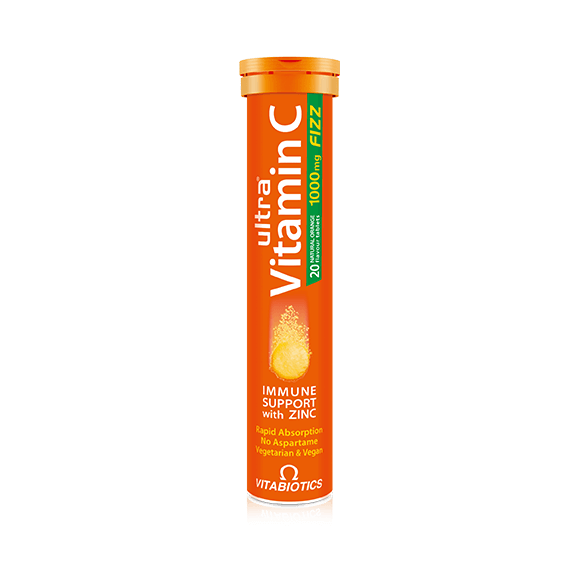Reap The Benefits Of Vitamin C For Skin With The Right Foods And Supplements.
You might not think of the vitamin C benefits for skin, yet it’s one of the key nutrients that can help. Vitamin C contributes to normal collagen function for the normal function of skin.
Ensuring an adequate intake of vitamin C is also essential for a number of other reasons. Here we share the benefits of vitamin C, the sources of vitamin C and the supplements that can safeguard your intake.
How Much Vitamin C Per Day Do I Need?
According to the NHS, men and women between the ages of 19 and 64 should get 40mg of vitamin C each day, however many experts believe there are times when higher levels of vitamin C can be beneficial. The NHS also advises that children from six months up to five years old are given a daily vitamin supplement which contains vitamin C, vitamin A, vitamin D. They should also eat foods rich in vitamin C.
As vitamin C is a water-soluble vitamin, it comes out in our wee, so we need an adequate intake every day. It cannot be stored in the body unlike fat soluble vitamins.
The Benefits Of Vitamin C For Skin
Vitamin C contributes to normal collagen formation, which is important for skin. In the skin, the protein collagen can be found in the lower layer, known as the dermis. This collagen forms connective tissue, which holds together the body's structures.
Vitamin C contributes to the normal function of bones, teeth, cartilage, gums and blood vessels, too.
What’s more, vitamin C protects our cells from oxidative stress. Oxidative stress is an imbalance between free radicals and antioxidants on the body. Free radicals can be generated from sunlight and pollution.
Read More - The Benefits Of Vitamin C
The Main Sources Of Vitamin C In Food
The main foods that contribute to our vitamin C intake are fruits and vegetables.
Here are some of the biggest contributors to ensuring an adequate intake of this important vitamin...
- Dried Chives - per 100g- 660mg
- Guavas - per 100g 228mg
- Sweet Yellow Peppers - per 100g- 183.5
- Blackcurrants - per 100g - 181mg
- Bell Peppers - per 100g -128mg
- Kiwi - per 100g - 93mg
- Broccoli - per 100g - 89mg
- Brussels Sprouts (cooked) - per 100g- 62mg
- Papaya - per 100g - 61mg
- Snow Peas - per 100g - 60mg
- Strawberries - per 100g - 59mg
- Oranges - per 100g - 53mg
- Orange Juice - per 100g- 50mg
- Dried Goji Berries - per 100g - 48.4mg
- Cauliflower - per 100g- 48.2mg
- Florida Grapefruit - per 100g- 37mg
- Garlic - per 100g- 31.2mg
- Kale - per 100g- 18mg
Read more about vitamin C foods







Comments (0)